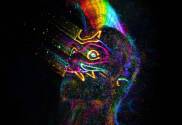
Stable Diffusion maker Stability AI enters 3D model generation
Stability AI, the company behind the popular AI image generator Stable Diffusion, is making a foray into 3D content creation with the launch of Stable 3D. According to a recent announcement, the new tool allows users to generate 3D models through text prompts or by uploading reference images.
Stable 3D marks Stability AI’s entrance into the rapidly growing field of AI-powered 3D asset generation. While still in private beta, Stable 3D aims to make 3D model creation accessible to non-experts. Users can describe a desired 3D model in natural language or provide an existing 2D image or illustration to convert into a 3D asset. The tool outputs 3D models in .obj format, which can then be imported into standard 3D tools like Blender, Maya, Unreal Engine, and Unity for further editing.
3D content tends to be complex and time-consuming
According to Stability AI, 3D content creation is often complex and time-consuming, taking hours or days even for moderately simple assets. They hope Stable 3D can significantly accelerate 3D model creation for graphic designers, artists, and game developers by allowing them to generate thousands of models per day. This could provide independent creators access to 3D model creation capabilities previously requiring extensive technical expertise.
However, details remain scant regarding the data used to train Stable 3D’s generative models. Given recent controversies regarding Stable Diffusion’s training data, including a lawsuit from Getty Images and various artists, properly licensing any copyrighted data will be critical for Stable 3D.
What about Stability AI’s lack of transparency?
Unwittingly incorporating IP-infringing content into Stable 3D-generated models could create legal risks for users. Stability AI’s lack of transparency regarding training data remains an ongoing concern.
Stable 3D enters an increasingly competitive space, with similar model generation tools offered by startups like Kaedim, Auctoria and Hypothetic. Tech giants like Meta and Nvidia have also experimented with AI-based 3D content creation. Stable 3D seems comparable in capabilities to these other solutions, but its association with Stable Diffusion could give it an advantage in adoption.
The launch of Stable 3D represents Stability AI’s efforts to diversify beyond Stable Diffusion as competition intensifies. Stable Diffusion exploded in popularity last year for its ability to generate striking AI art from text prompts. However, rival platforms like Midjourney have largely caught up in image quality and features.
Stable 3D, along with Stability AI’s other new offerings like the Stable Audio music generator, chatbot, and photo editing features, aims to maintain its leadership in generative AI. But with reported financial troubles, including high burn rates and payroll issues, the company faces uphill challenges converting buzz to sustainable revenue growth.
Featured Image Credit: Graphic by Mo Eid; Pexels; Thank you!




